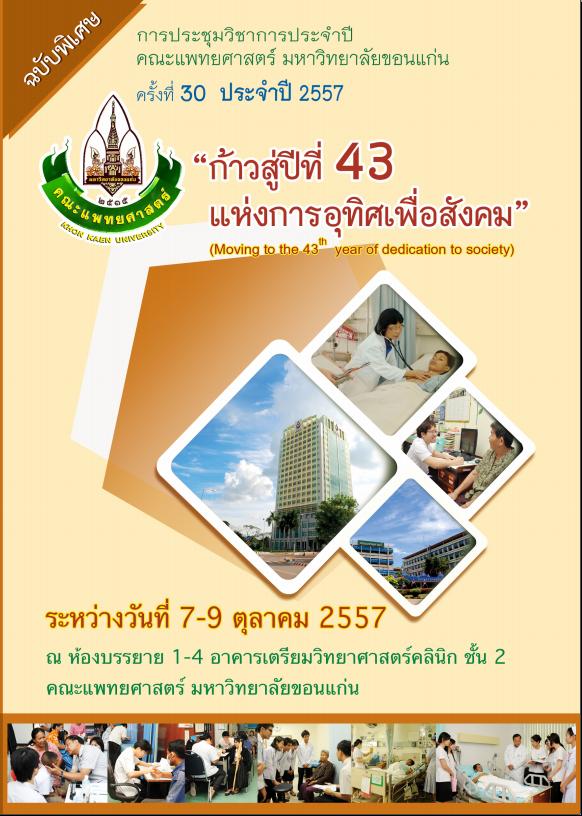Comparison of Propofol versus Dexmedetomidine in Pediatric Cardiac Catheterization
Keywords:
propofol, dexmedetomidine, pediatric cardiac catheterization Cardiovascular and respiratory complicationAbstract
Background and objective : Intravenous sedation with propofol or dexmedetomidine (DEX) in spontaneous breathing is being used at our cardiac catherization laboratory. This study aim to compare adverse events of propofol and DEX sedation in pediatric cardiac catheterization.
Methods : The charts between September, 2012 to June, 2014 were reviewed, and adverse events were recorded. Sedation was induced with midazolam 0.08-0.15 mg/kg and fentanyl 0.5-2 mcg/kg. In the group of propofol, bolus with 1-2 mg/kg in 5-10 minutes then infused at the rate 5-10 mg/kg/hour. In the group of DEX, loading dose of 1 mcg/kg over 10 minutes, then infused 0.3-1 mcg/kg/hr.
Results : In total, 123 cases of cardiac catheterization were employed in the study periods. Outcomes were shown Propofol group had higher respiratory events than DEX group (25.4 vs. 3.8%). Cardiovascular events were low, there were three cases of propofol group had bradycardia from desaturation, turned out to normal after positive pressure ventilation or adrenaline infusion. Adrenaline was discontinued after the procedure. One case in DEX group developed bradycardia and recovered from atropine injection.
Conclusions: There was a quite high incidence of respiratory adverse events in propofol group. Awareness to reduce adverse events may require readjustment of propofol infusion dose.




